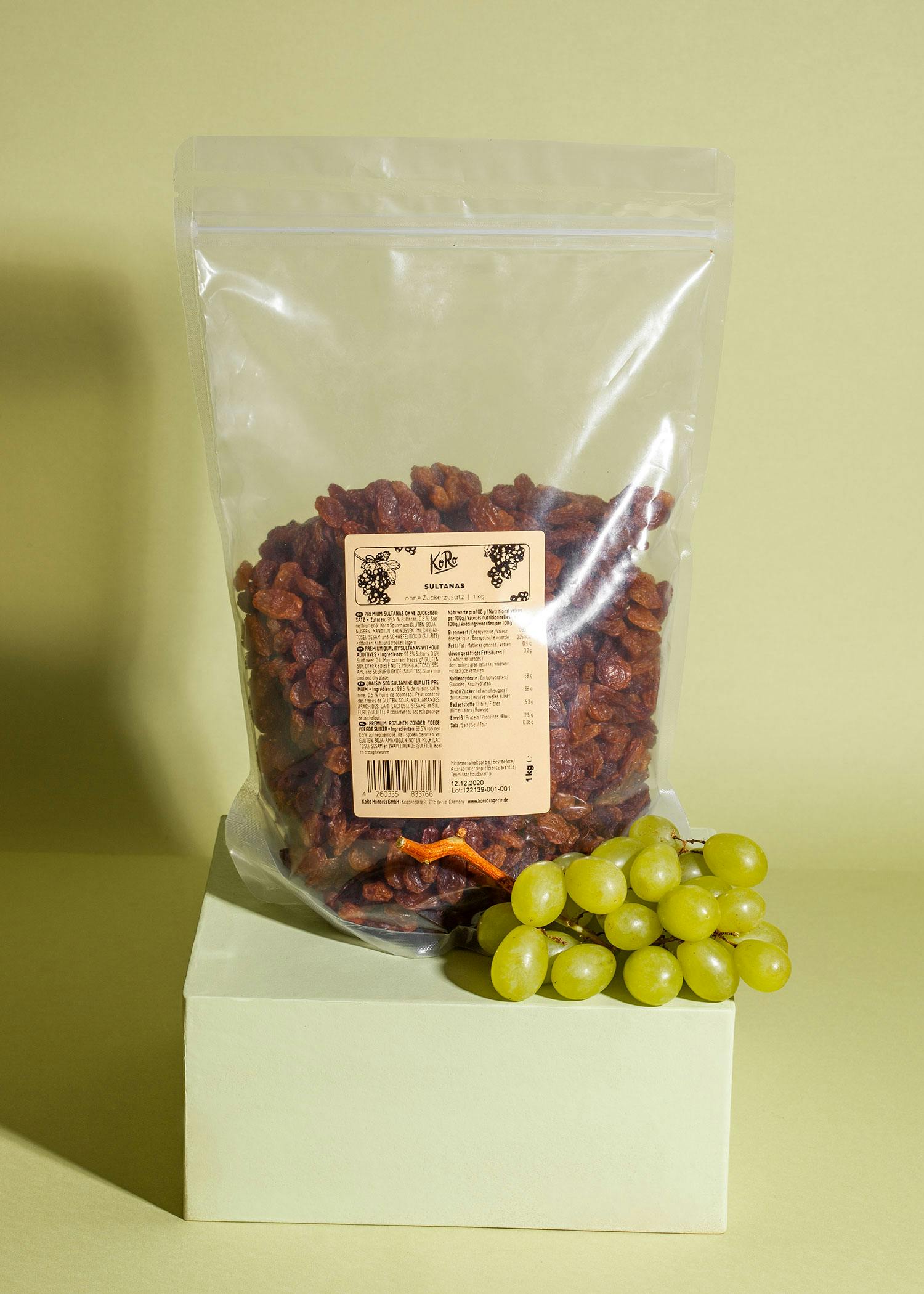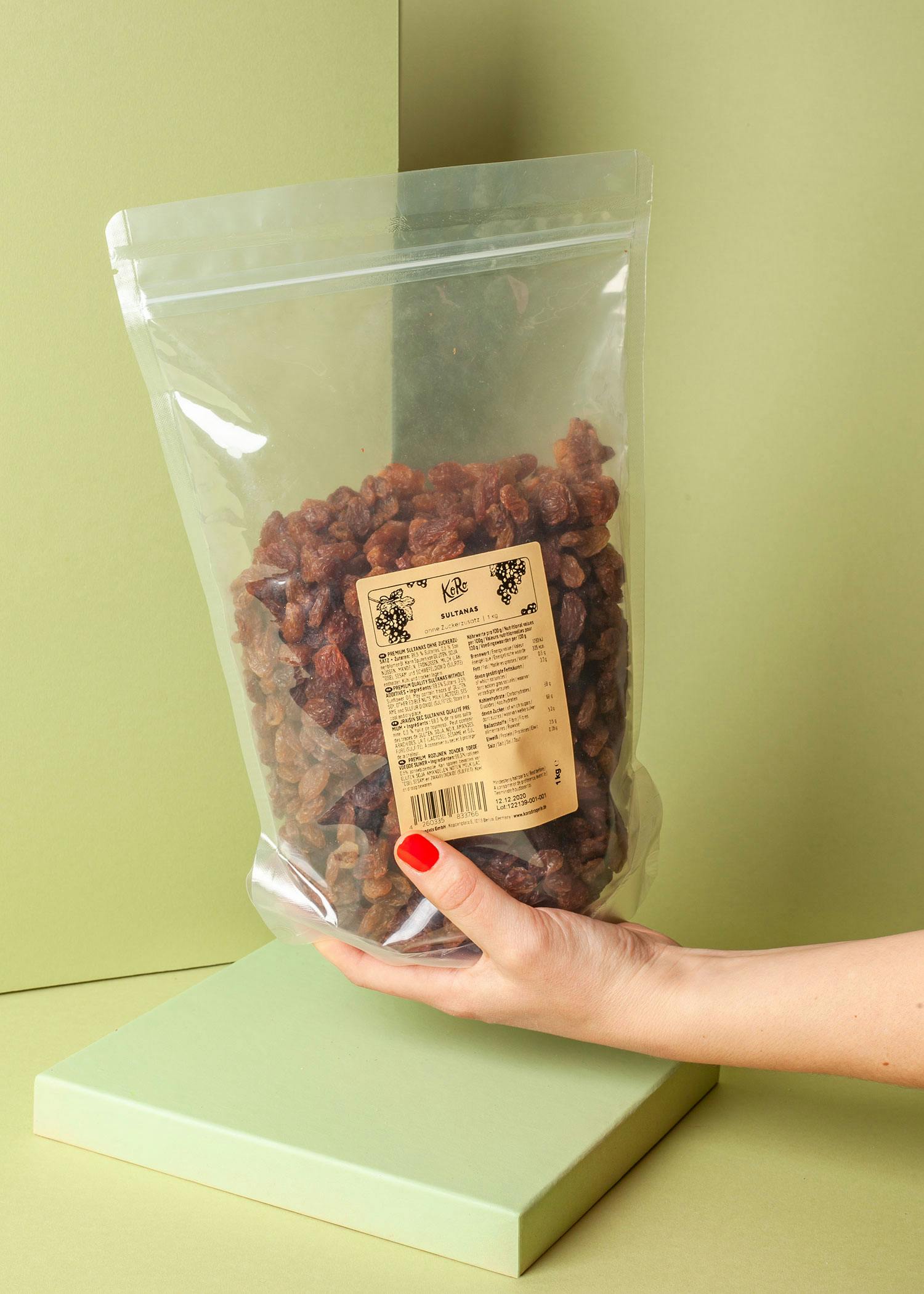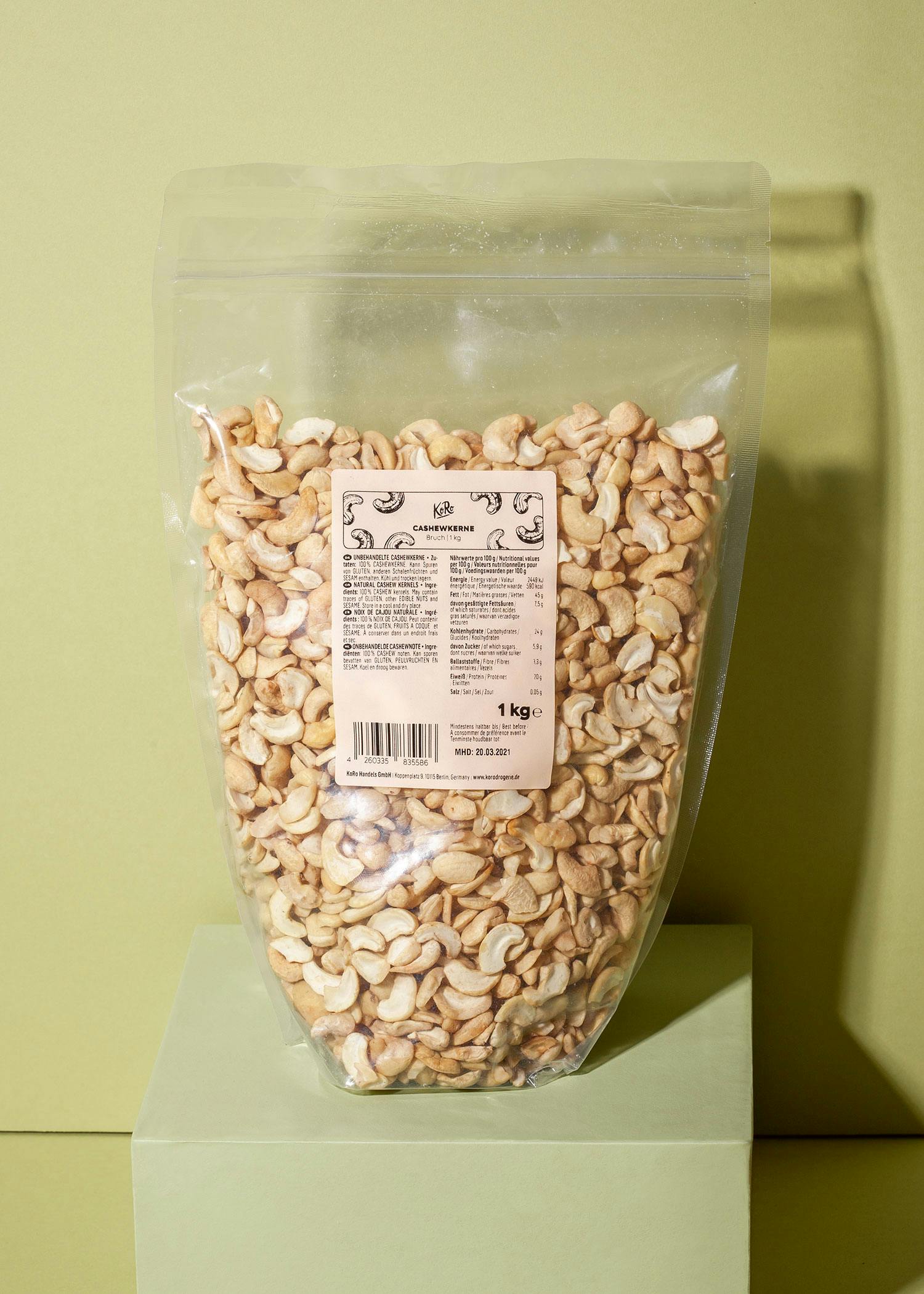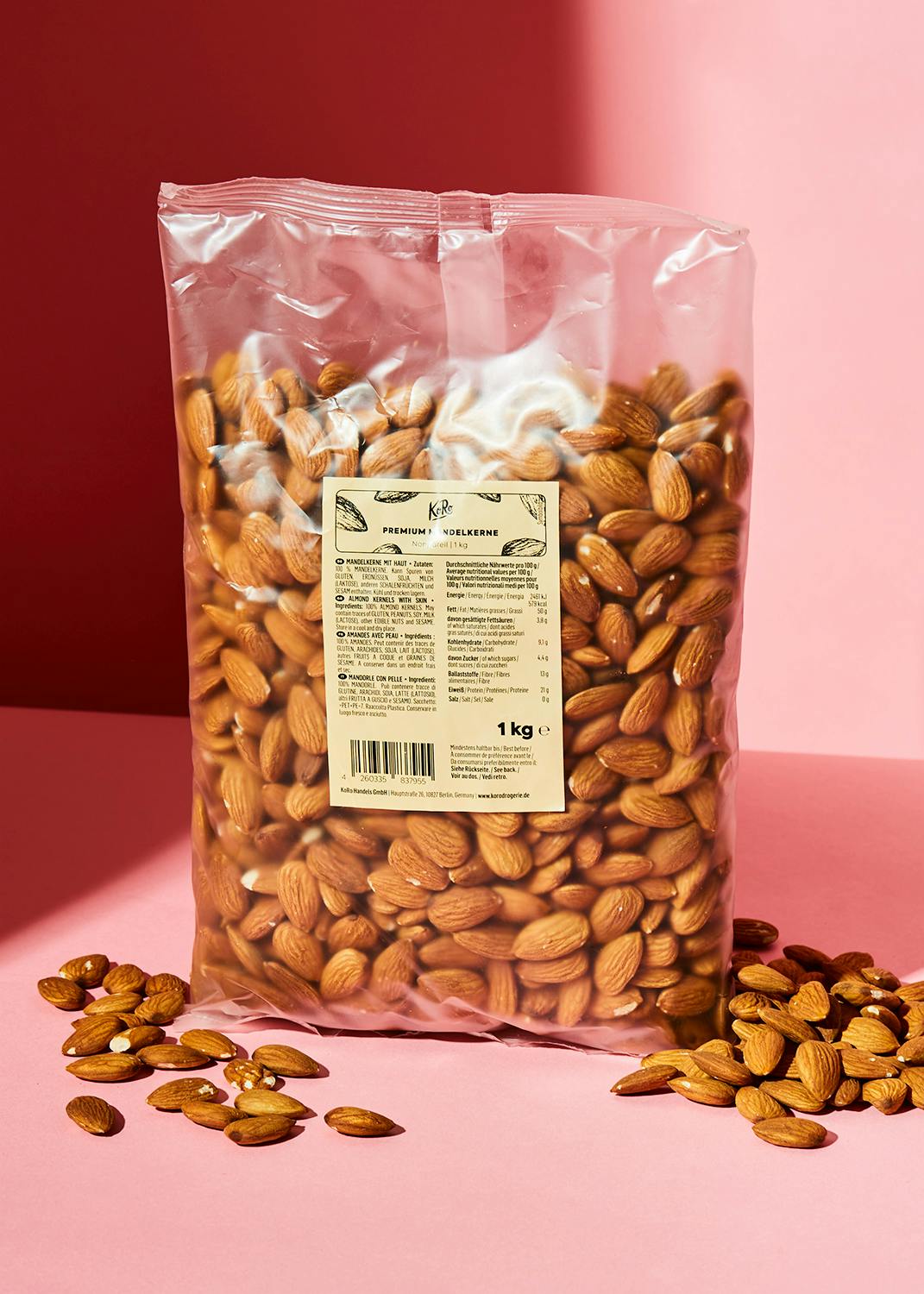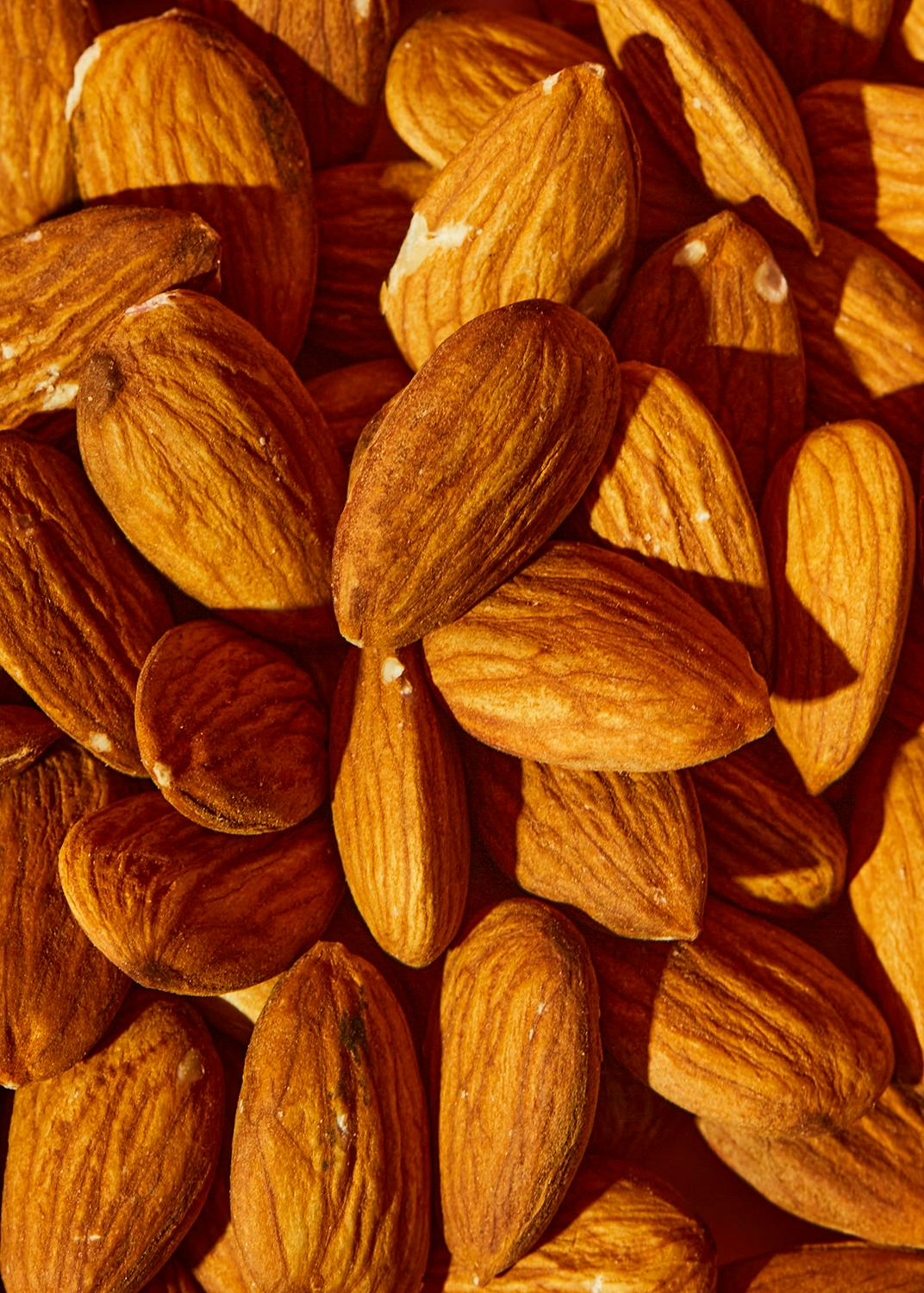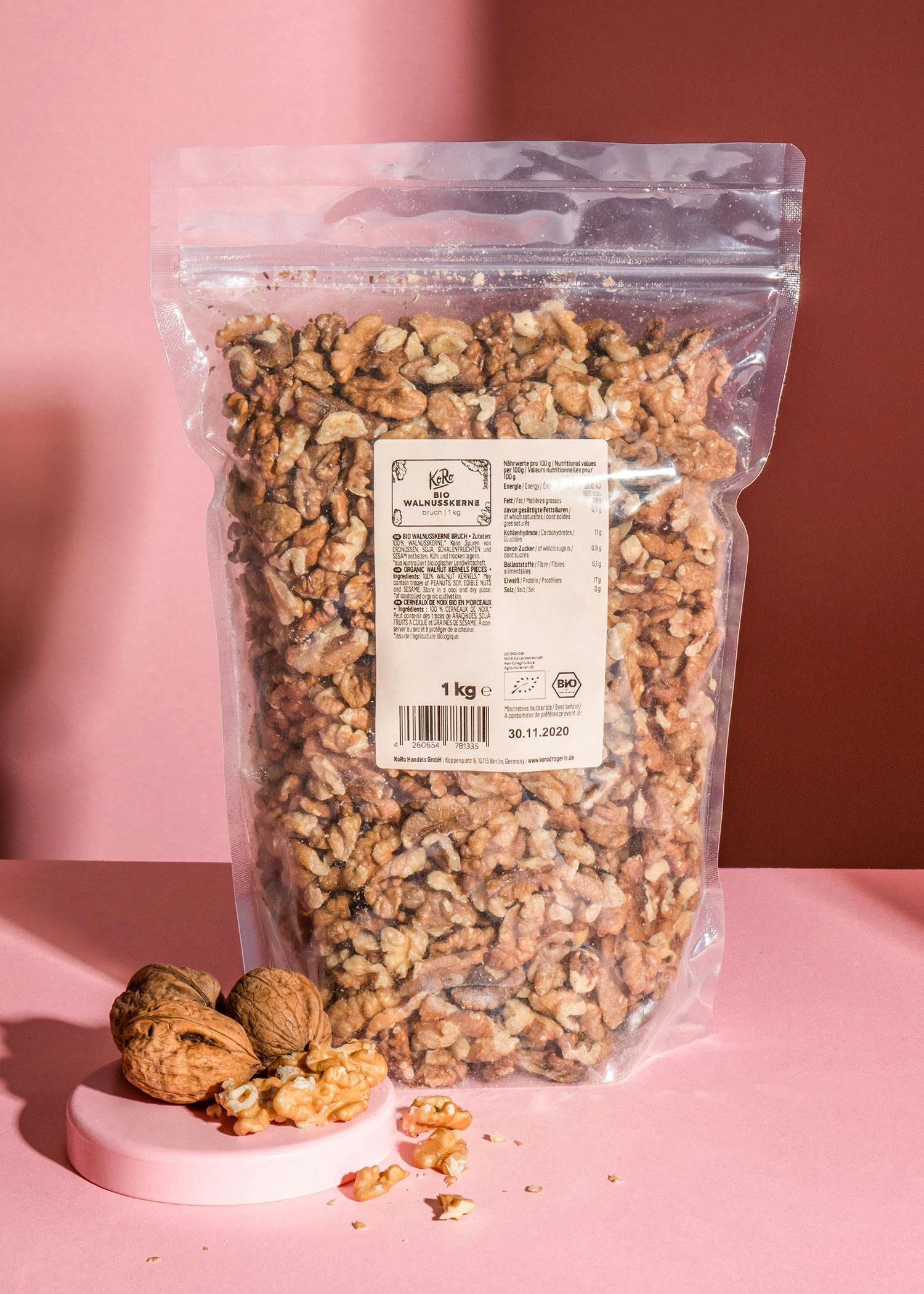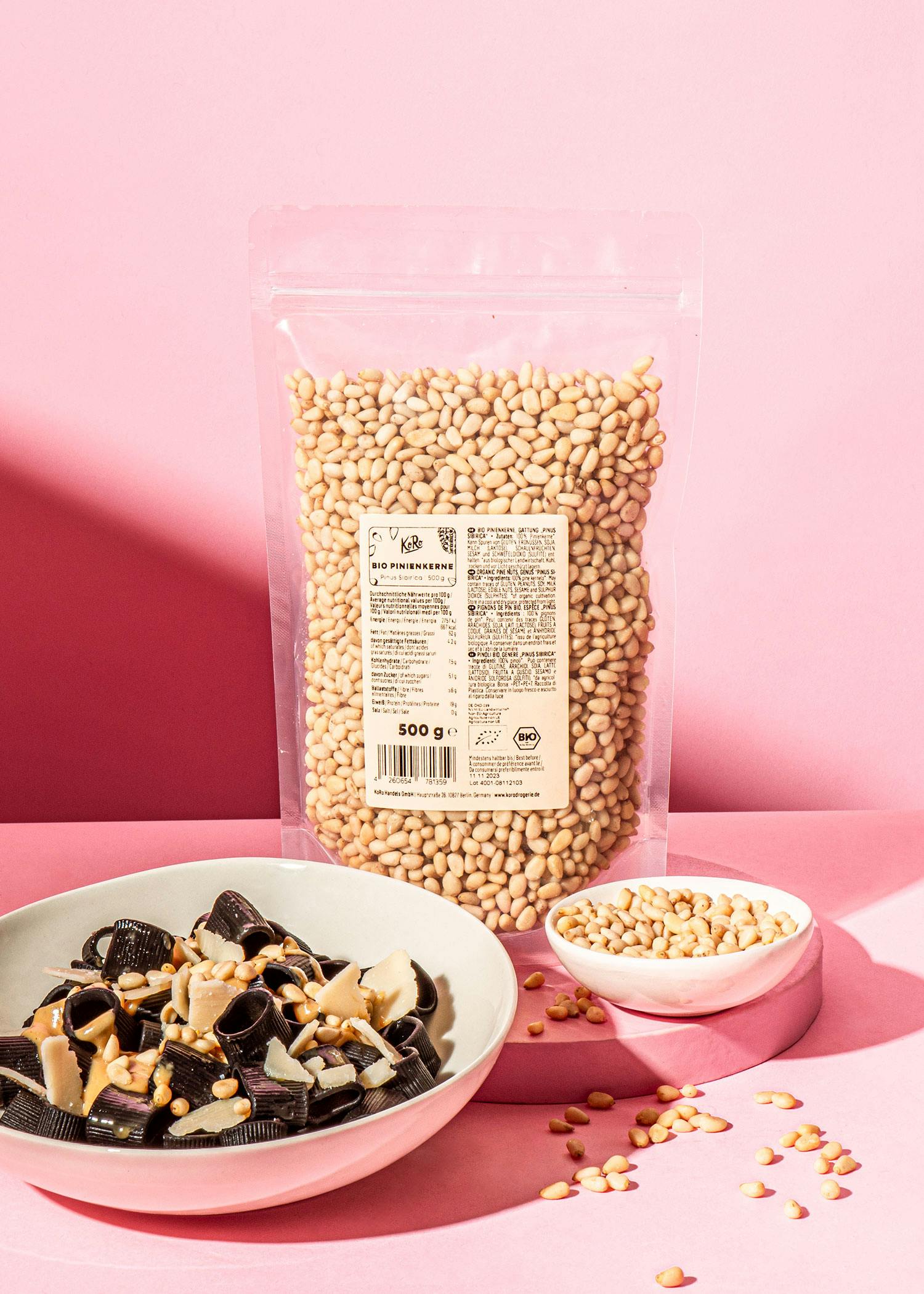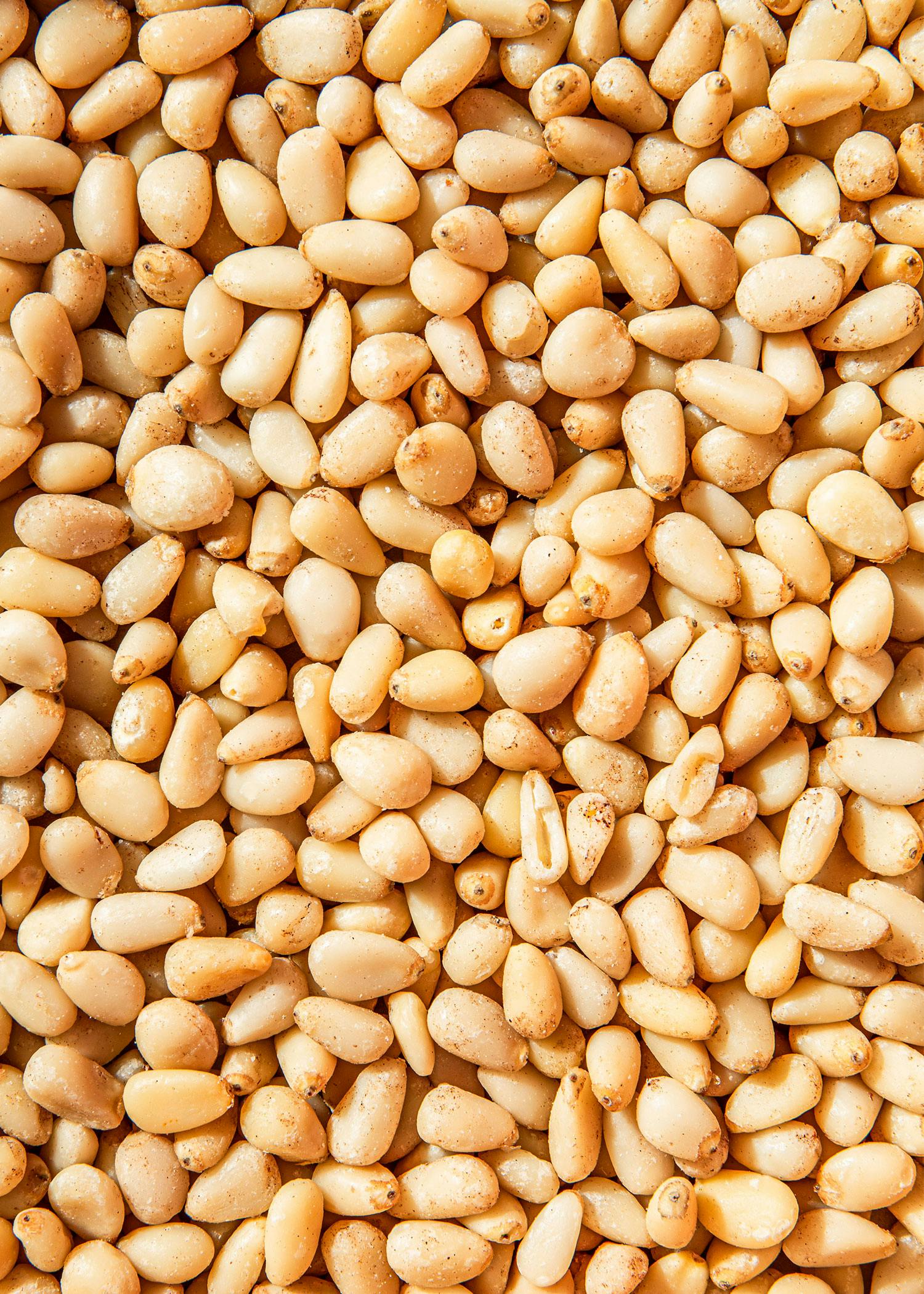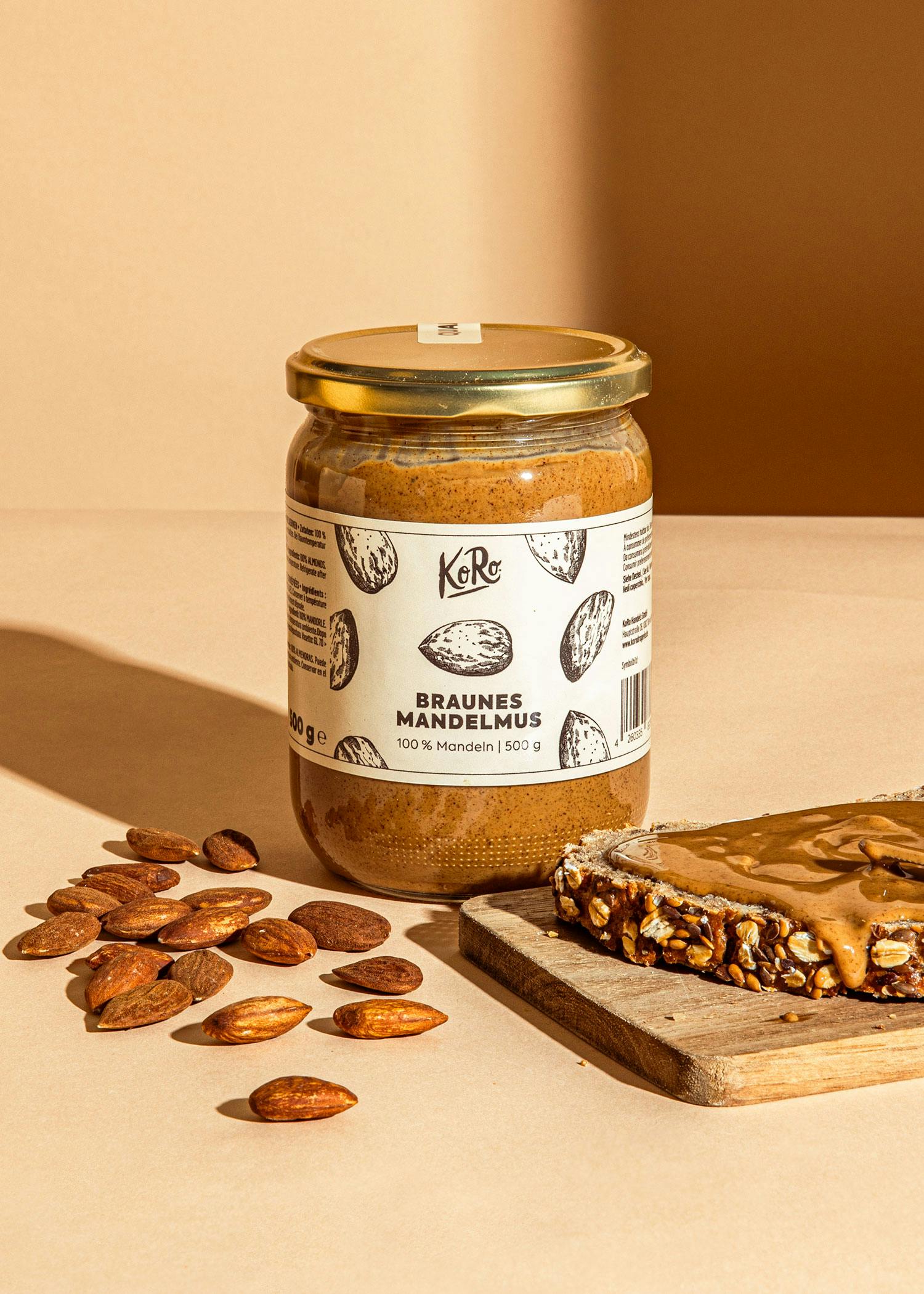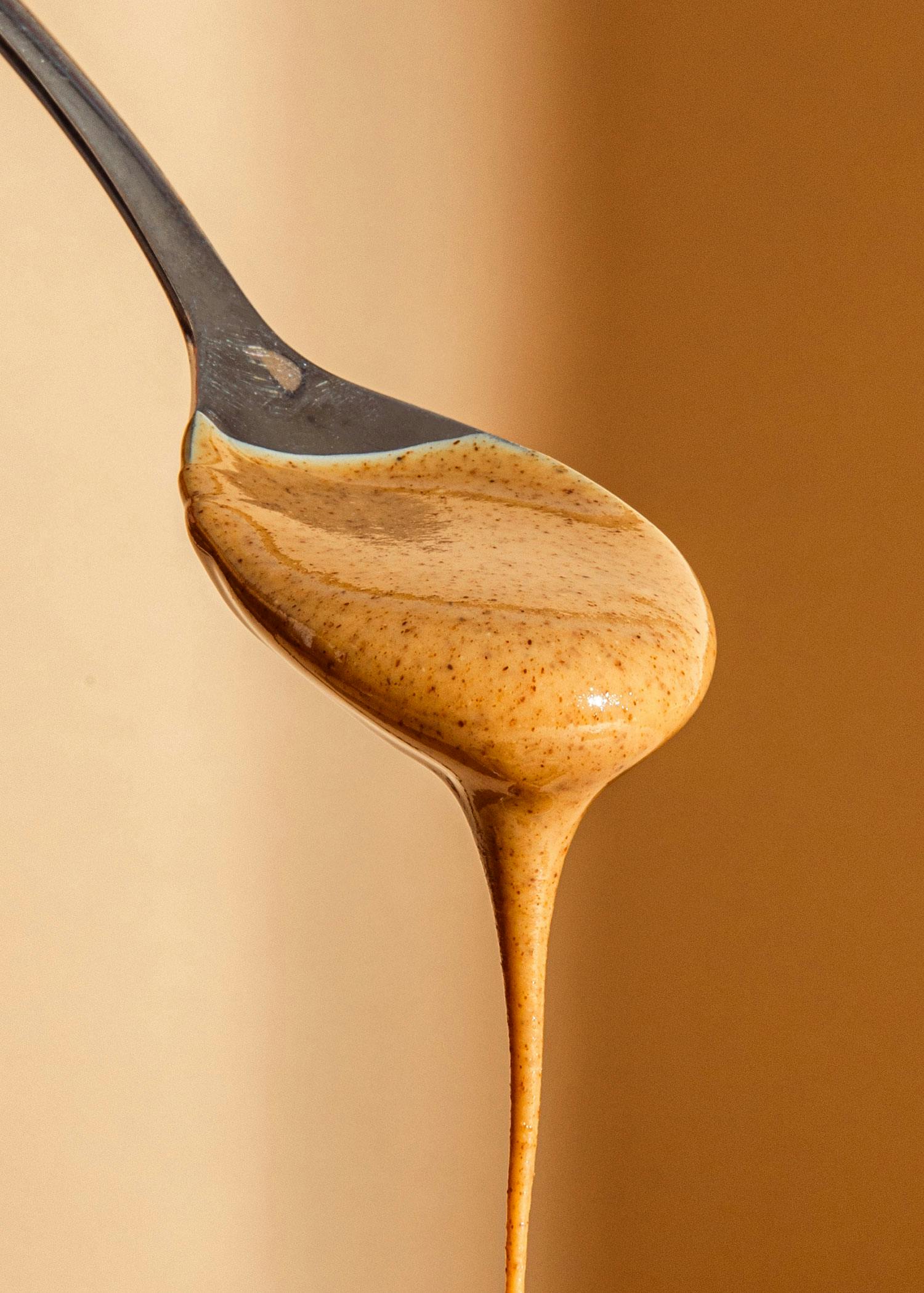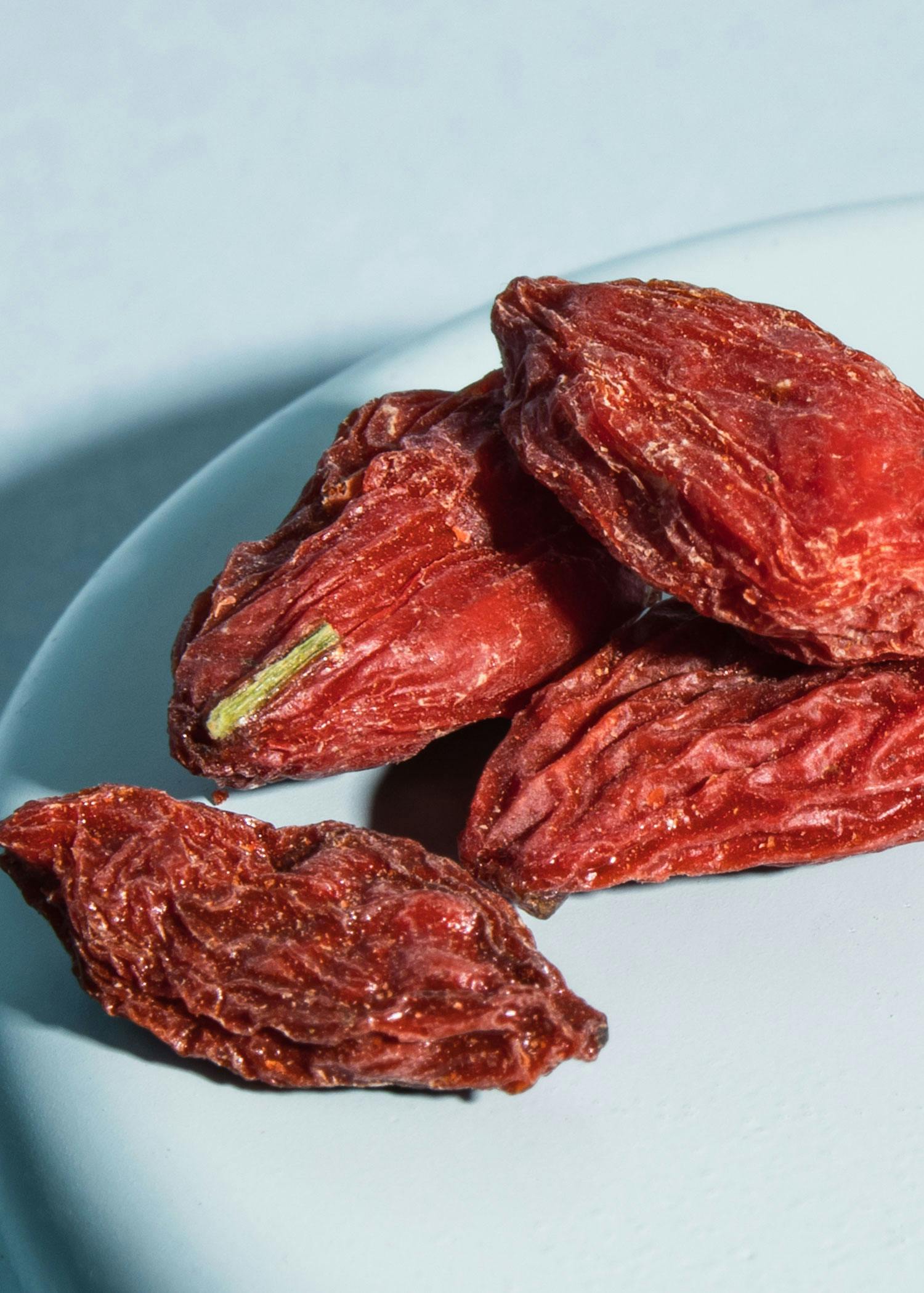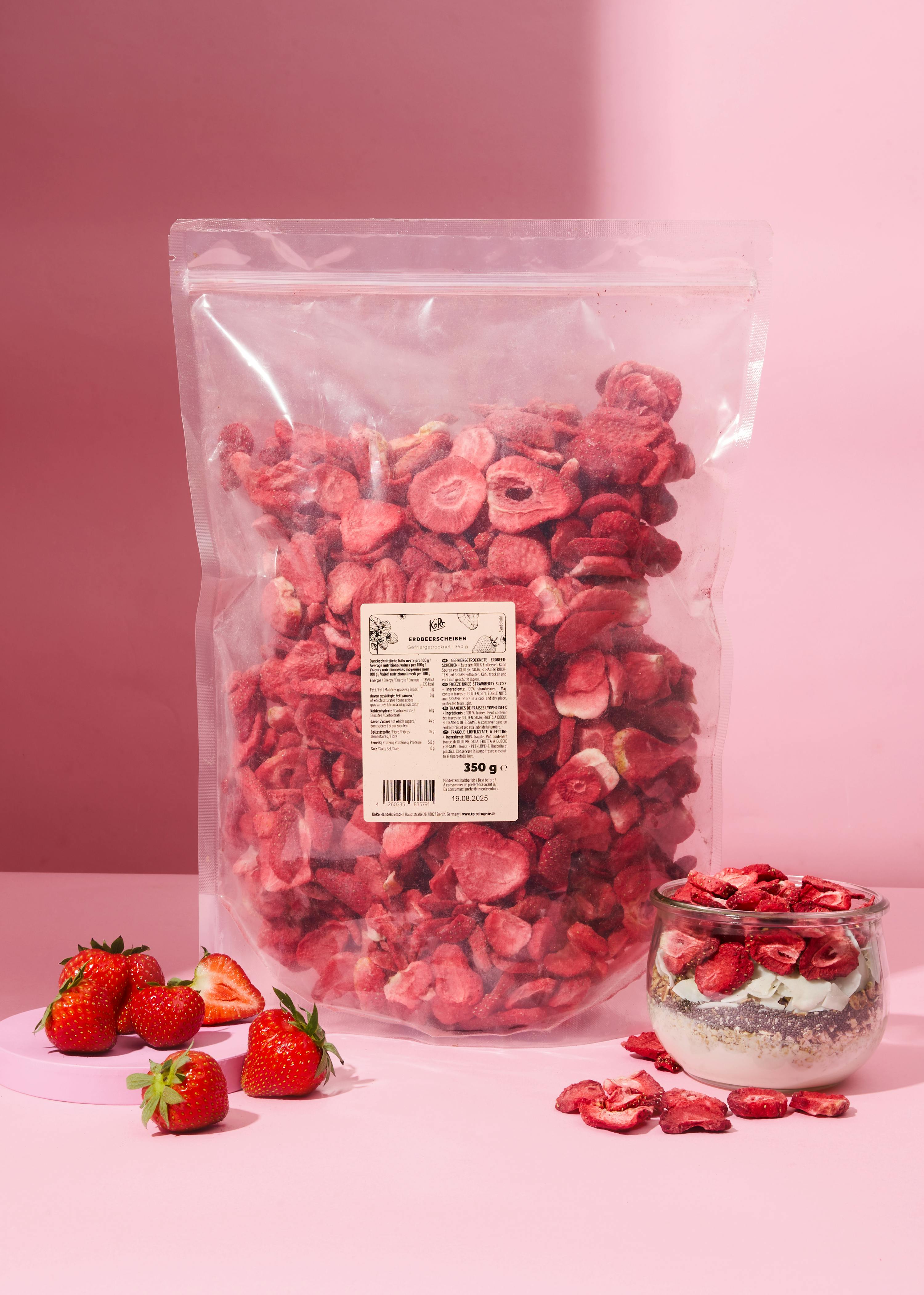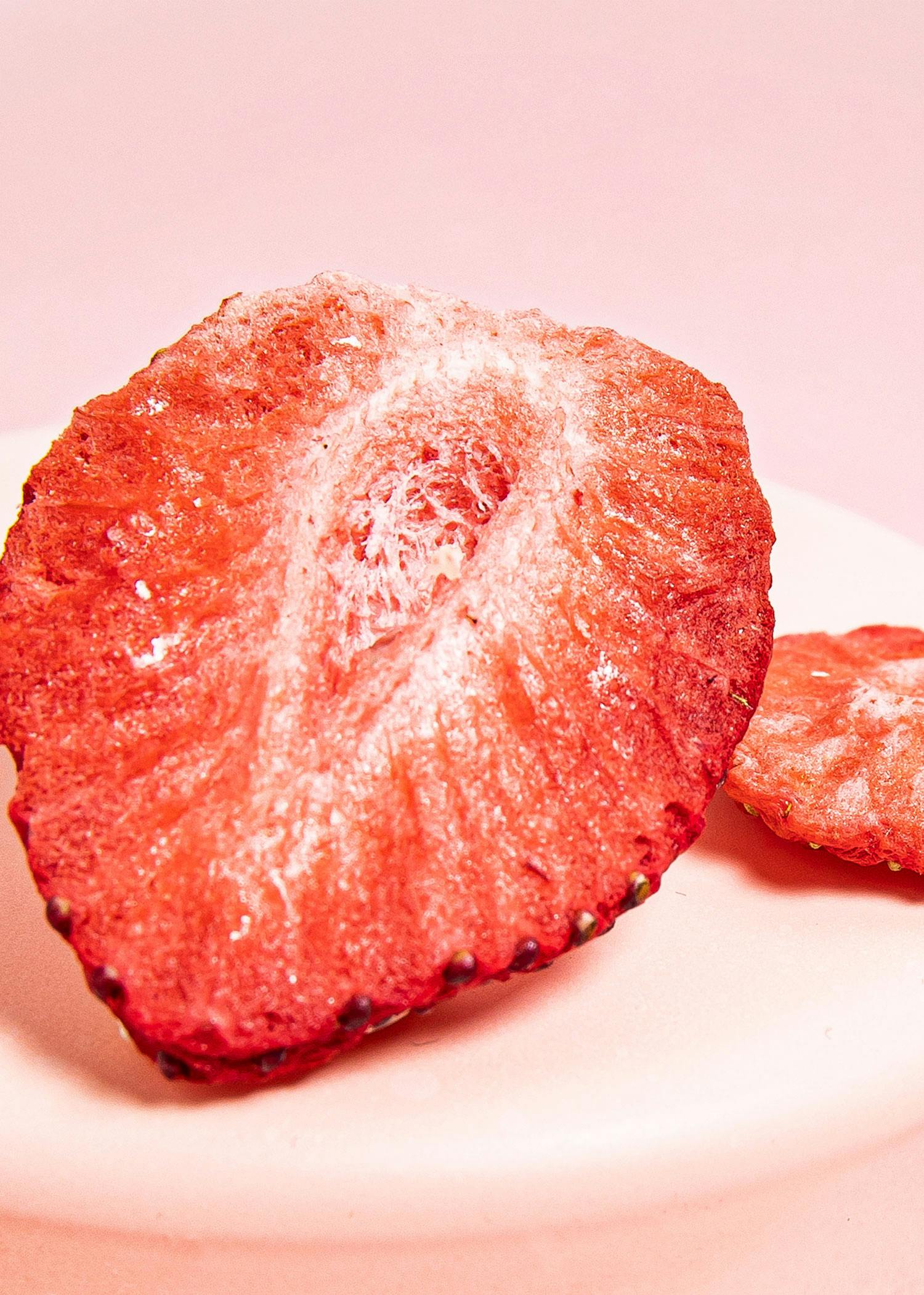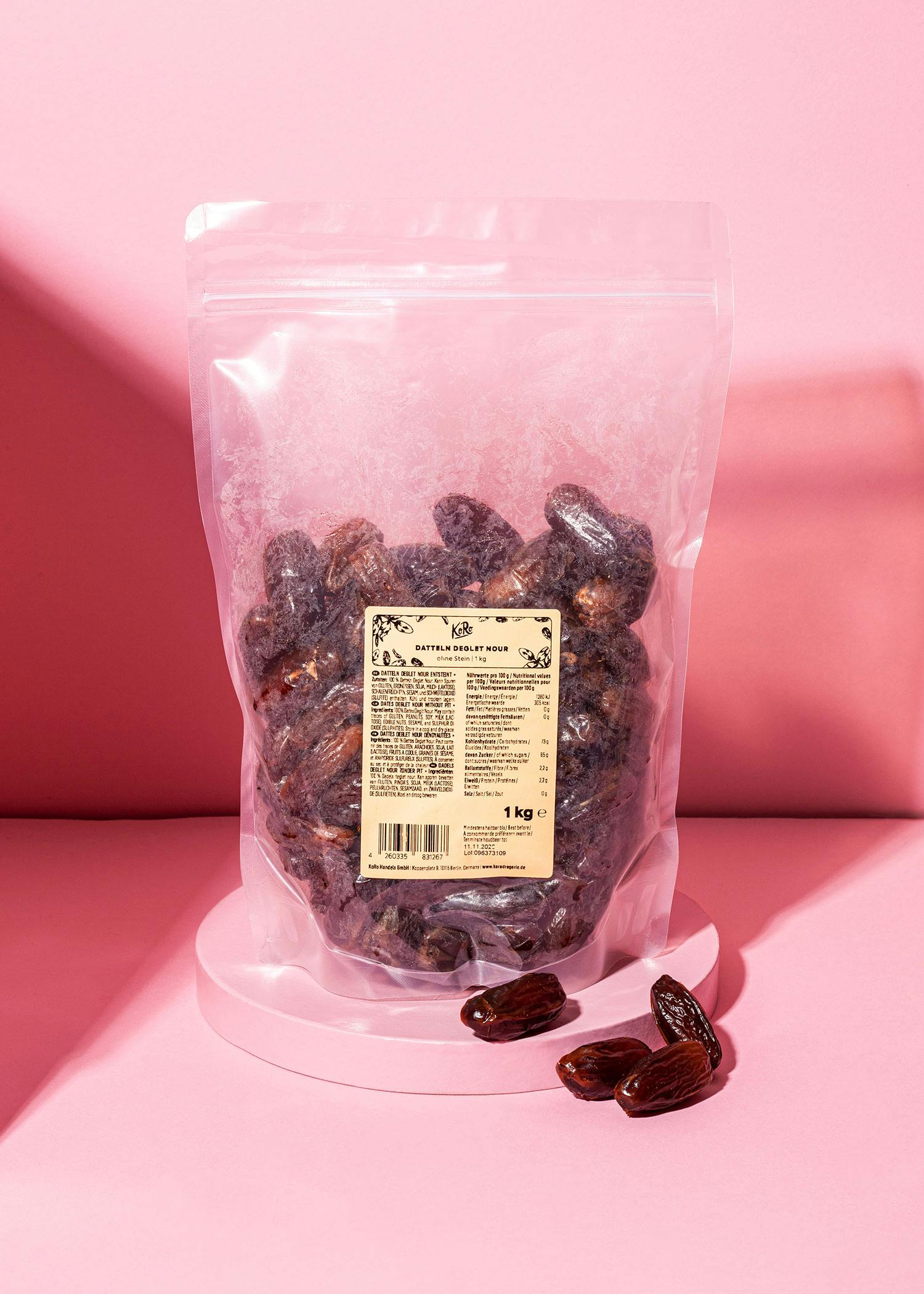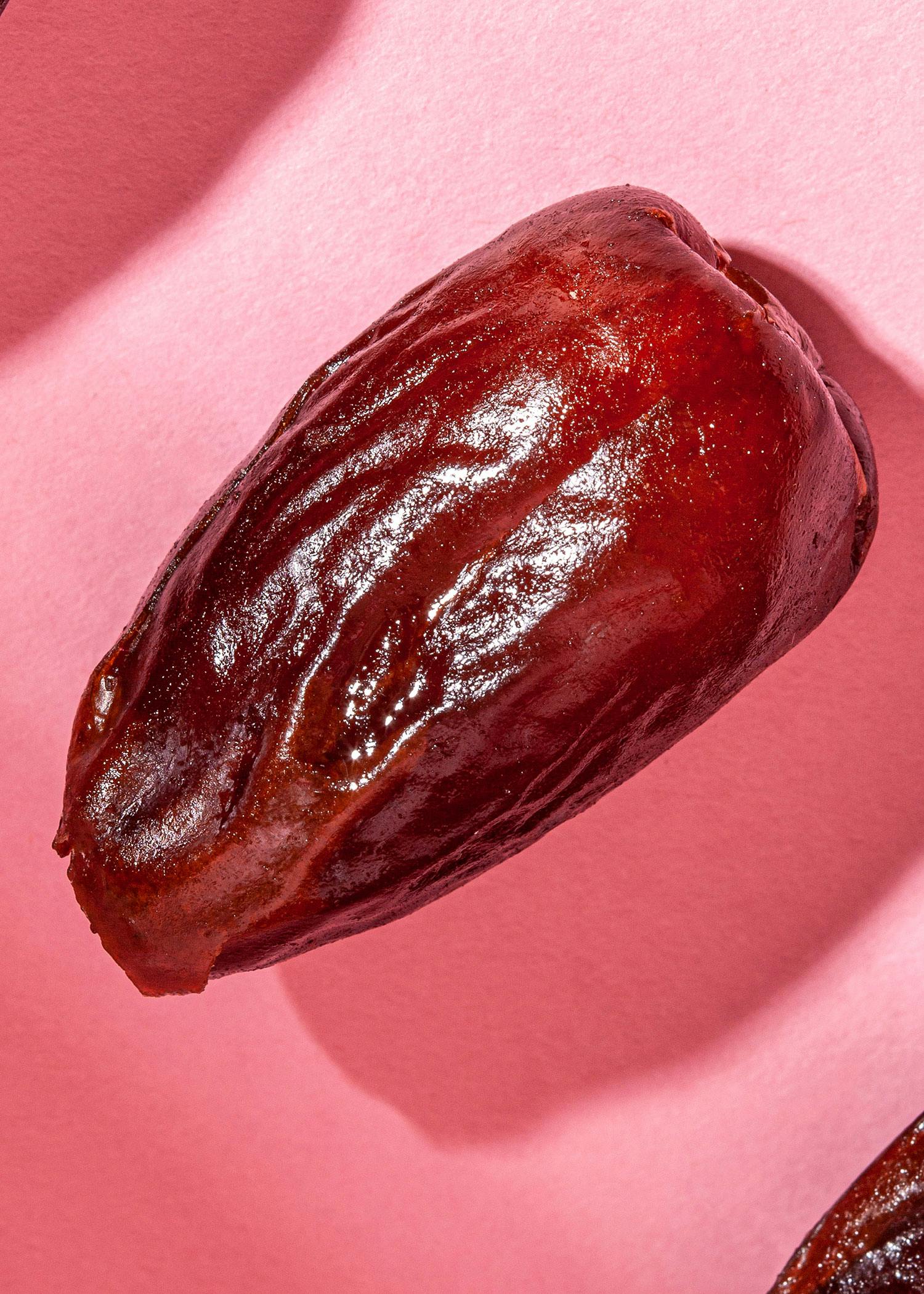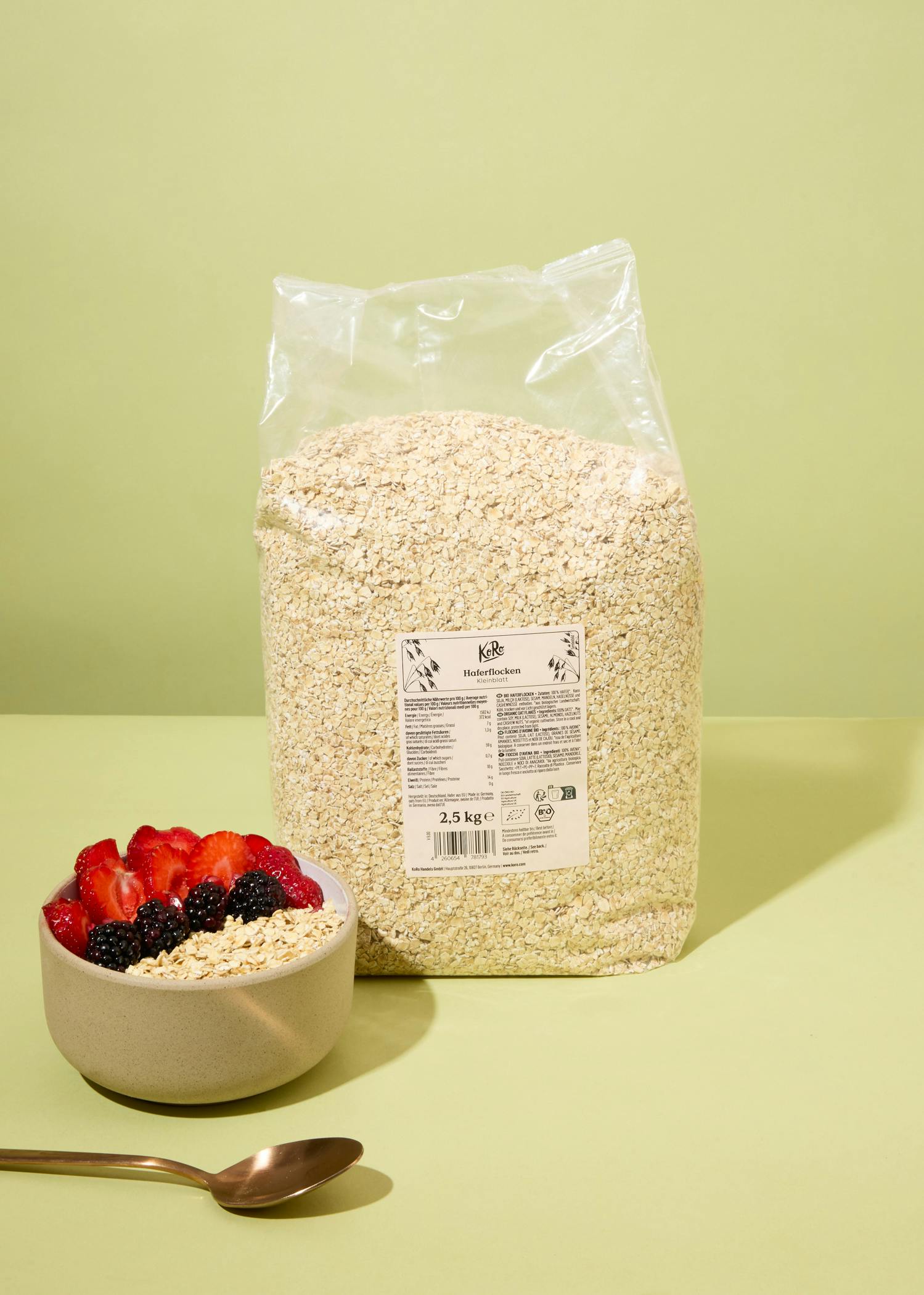Buy now: Sultanas 1kg
Why did Ms. grape leave her family? She was tired or raisin children! — agreed, that might not have been the best joke, but we have your attention now, don't we?
Raisins simply belong in trail mix, in mueslis and in Christmas cakes and breads. This is mainly due to their delicious sweetness and light honey flavour. If you're wondering what the differences are between grapes, sultanas, and currants (yes, there are differences), then be sure to read on and add the Premium Sultanas with no added sugar to your shopping cart right now to be equipped with a super great snack in a convenient bulk pack. Buy Premium Sultanas with no added sugar now!
Sultanas vs. raisins vs. currants – what is the difference?
You have probably heard all three terms before. But what is what and what is the difference? Both sultanas and grapes belong to the raisin group. Raisin is the collective term for dried grapes. There are light and dark dried grapes, whereby the colour says nothing about the freshness of the fruit. Most raisins are produced in the USA, Australia, Iran and Turkey: where it is nice and warm. The Sultana is one of the most important grapes, as it has a thin skin, no seeds and tastes particularly sweet. Its size and plumpness also make it so popular. When raisins are dipped in a little oil before drying, the juicy-sweet sultanas are produced. Currants, by the way, are made from small, black-purple grapes that usually come from Greece, often near Corinth. Hence the name.
Buy premium sultanas with no added sugar
The Romans used to eat grapes with great love. We still do today, but we prefer the dried variety. This preserves the grapes and brings out the sweetness even better. Pure. Without any frills. Our Premium Sultanas are not only without added sugar, but also unsulphured. Just as KoRo created them. We simply dip the berries in a little oil before drying them so that they dry even faster and can be enjoyed. Sultana buns, sultana rolls, a delicious yeast plait or cake can all benefit from the miracle berries and also spice up savoury dishes such as curries and couscous salads. Buy the 1 kg reserve pack now and add that special portion of sweetness to your favourite dishes.
| Average nutritional values | per 100 g |
|---|---|
| Calorific value (in kj/kcal) | 1293 / 305 |
| Fat | 0.6 g |
| thereof saturated fatty acids | 0.2 g |
| Carbohydrates | 69 g |
| thereof sugar | 68 g |
| Dietary fiber | 5.2 g |
| Protein | 2.5 g |
| Salt | 0.05 g |
| Product number: | SULT_002 |
|---|---|
| Best before date | 28.09.2025 |
| Origin | Turkey |
| Content | 1 kg |
| Manufacturer | KoRo |
| EAN/GTIN | 4260335833766 |
| Data sheet | Specification |
| Nutrition traces | Nutrition traces |
| Shipping | Delivery time outside of Germany |
| Company |
KoRo Handels GmbH Hauptstraße 26, 10827 Berlin |
| Storage Advice | Store in a cool and dry place, away from heat |
| Ingredients | 99.5% raisins, 0.5% cottonseed oil |
| Cross contamination | May contain traces of GLUTEN, SOY, ALMONDS, PEANUTS and other TREE NUTS, MILK (LACTOSE), SESAME and SULPHUR DIOXIDE (SULPHITES). |
| Trade Name | Premium sultanas without added sugar |
| Label note | Ingredients, nutritional values, and packaging may change. For exact information, please check the product description. |
| Press & Resellers | Download cropped photo |
Climate impact
At KoRo, we analyse the greenhouse gas emissions that are produced during the production of our snacks. These include, among other things, CO2, methane and nitrous oxide. Our hard-working sustainability team collects all the information to calculate a value: the so-called CO2 equivalents. We are now passing this information on to you so that you can make informed purchasing decisions and keep an eye on your personal carbon footprint. We also use these valuable findings ourselves, to try to make our supply chains even smarter in the future and monitor our CO2 footprint.
CO₂ emissions by product
To make the work of our sustainability team easier, we have teamed up with the company Cozero. They support us with their decarbonisation software to calculate the CO2 emissions of our products. Our products go through a lot before they make their way into your pantry or snack bowl, so there is a lot to take into consideration: production, packaging, and logistics – to name just the big steps.
- Product
- Packaging
- Logistics
CO₂ emission per product in comparison
Would you like to find out how well your favourite snack stacks up against other products in terms of carbon footprint? Say no more! To create comparability, we calculated the CO₂ emissions per 1 kg of our products and compared them with other products that end up on many people's plates every day, such as cheese, tofu, and many more. We also included coffee as a drink for comparison. So no matter if it is your favourite snack or your go-to kitchen product, you are now able to see exactly how it performs in our “CO₂ per kg of product” ranking.
Comparison of CO₂ emissions per product in kg

Disclaimer: Different methods (comparison products) - The CO2 emissions of the non-KoRo products come from a different data source. Therefore, there may be differences between their evaluation method and the evaluation of KoRo products.
Varieties & origins

Sultanas
Sultanas are made from the light-coloured, seedless grape variety Sultana. In order to be dried, Sultanas are "dipped"
Exact figures on the worldwide production of the individual varieties of grapes are difficult to find, and what you see on the map is an approximation. Of course, not all of these grapes are dried, but it gives you a good overview of where grapes are cultivated. Annual production of raisins and sultanas is currently around 800,000 tons. Did you know that when the berries are dried, the water content of the berries drops to approximately 18% and the fructose content increases to about 33%?
This is how the price has developed over time
All data without guarantee!
Login
4-5 star reviews 🙂
Delicious and very versatile, I love them.
1-3 star reviews 🙃
Deliciously juicy raisins, unfortunately already out again
Again and again
I will order it again when it runs out.
Genau das was wir brauchen und in der richtigen Packungsgröße
Super 👍 simply delicious
Great alternative to raisins
Make your order free of shipping costs! 🤑
As long as new products don't have pretty photos yet, you save the shipping costs.
